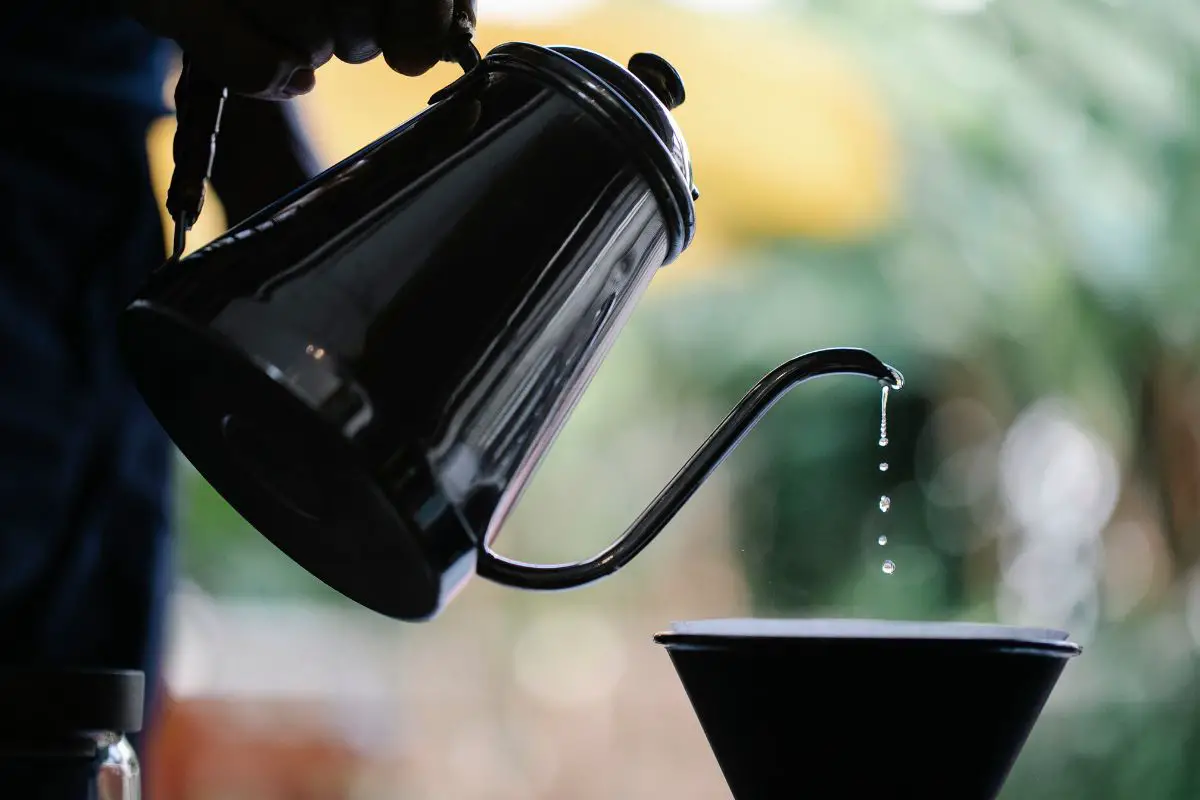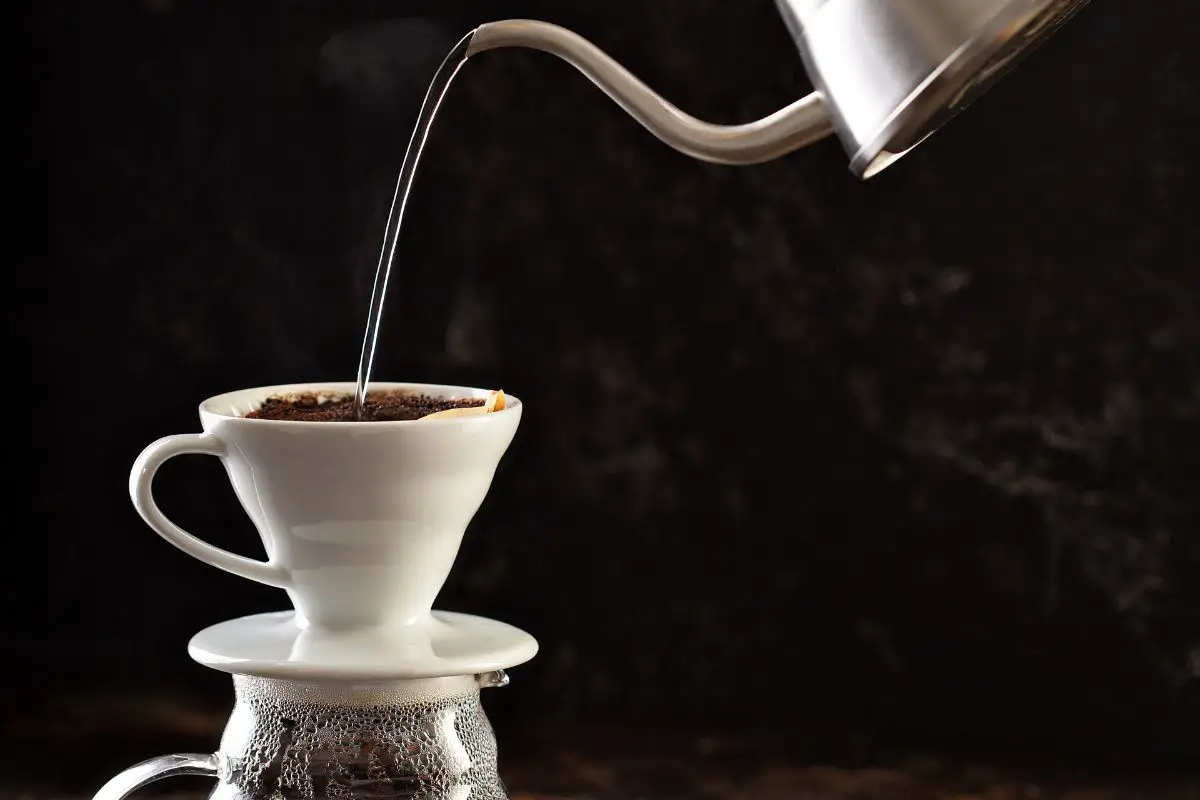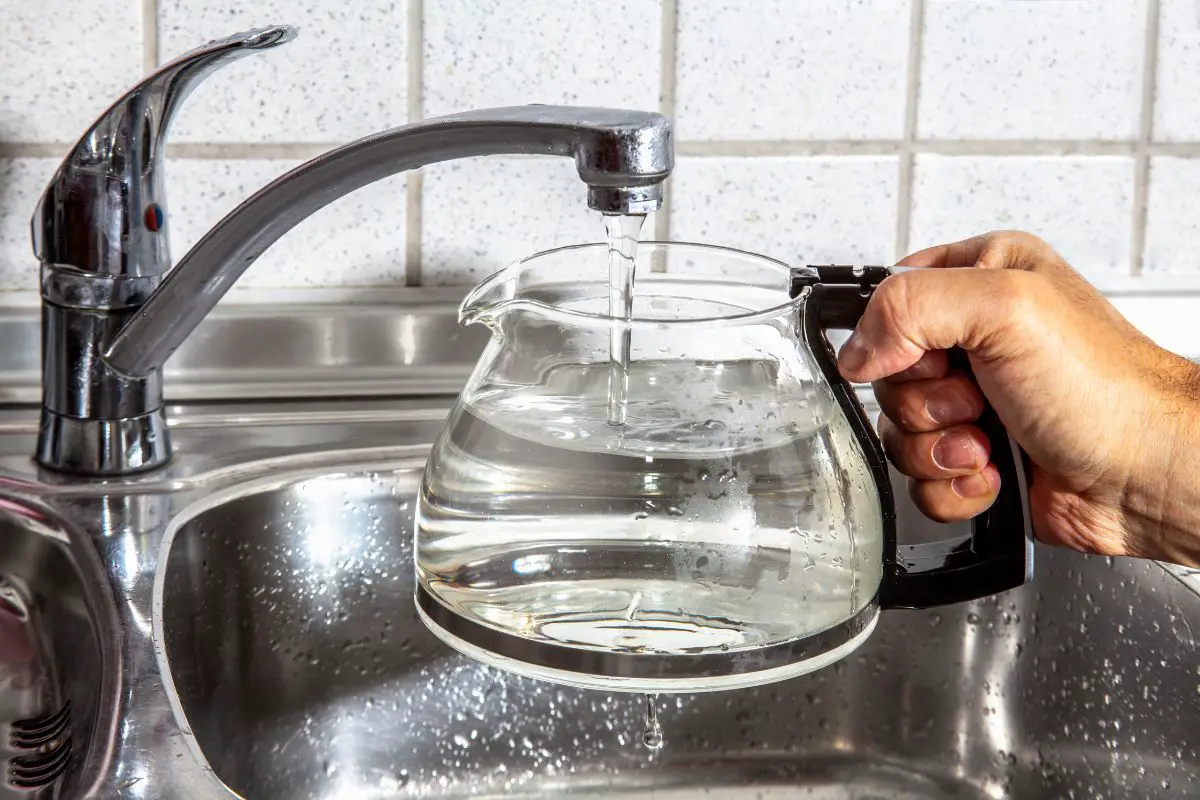Coffee is a beloved beverage enjoyed by millions around the world. Its rich aroma and invigorating taste make it a staple in many people’s daily routines. However, the quality of coffee is not solely determined by the beans used or the brewing method employed.

Surprisingly, the water used in the coffee-making process plays a crucial role in the final taste and flavor profile of the beverage. Just like a conductor leading an orchestra, the water acts as the maestro, orchestrating the harmonious symphony of flavors in each cup of coffee.
Choosing the best water for coffee is a meticulous task that requires knowledge and precision. Factors such as mineral content, pH level, and overall water quality must be considered to ensure a safe and enjoyable coffee experience.
In this article, we will delve into the importance of water quality in coffee brewing, explore different types of water suitable for coffee, and provide tips on how to properly brew coffee using the best water. By understanding the significance of water in coffee, you can enhance your coffee-drinking experience and savor every sip with confidence and satisfaction.
Key Takeaways
- Water quality significantly impacts the taste and flavor of coffee.
- Filtered water provides a consistent mineral balance for predictable flavor.
- Spring water enhances coffee flavor with natural minerals.
- Paying attention to water source, mineral content, pH level, and temperature is key for enhancing the coffee experience.
Understanding the Importance of Water Quality in Coffee Brewing
An essential aspect of coffee brewing lies in comprehending the significance of water quality, as it ultimately determines the overall taste and aroma of the beverage. The quality of water used in the coffee-making process can significantly impact the final product. Water with impurities or off-flavors can interfere with the extraction of coffee compounds, resulting in a subpar taste experience. Therefore, it is crucial to understand the role of water in coffee brewing and consider its quality carefully.
To ensure the best coffee flavor, it is important to use water that is free from contaminants such as chlorine, minerals, or organic compounds. Chlorine, often used as a disinfectant, can introduce unwanted flavors to the coffee. Minerals, such as calcium and magnesium, can affect the extraction process and alter the taste of the brew. Organic compounds, such as pesticides or herbicides, can also negatively impact the flavor profile.
Furthermore, the pH level of water can influence the extraction of different compounds in coffee. Ideally, the pH should be slightly acidic to enhance the extraction of desirable flavors. Additionally, the water temperature plays a crucial role in coffee brewing. It should be within the recommended range of 195-205°F (90-96°C) to ensure optimal extraction.
Considering these factors when choosing water for coffee will help achieve a delicious and well-balanced cup.
Factors to Consider When Choosing Water for Coffee
This discussion will focus on several key factors to consider when choosing water for coffee brewing.
Firstly, the mineral content and pH levels of water play a crucial role in extracting the desired flavors from coffee beans.
Secondly, the choice between filtered and tap water can have a significant impact on the taste and quality of the brewed coffee.
Lastly, the temperature and water hardness also influence the extraction process, affecting the overall flavor profile of the coffee.
These factors require careful consideration to ensure the optimal brewing conditions and a satisfying cup of coffee.
Mineral Content and pH Levels
With regards to the mineral content and pH levels, it is fascinating how water can possess the ability to alter the taste of coffee, as if one were witnessing a chemistry experiment unfold. The mineral content and pH levels of water play a crucial role in extracting flavors from coffee beans. The right balance of minerals can enhance the sweetness, acidity, and overall flavor profile of the coffee. Additionally, pH levels can affect the extraction process, as certain compounds in coffee are more soluble at specific pH values. To illustrate the importance of mineral content and pH levels, consider the following table:
| Mineral Content | pH Level | Effects on Coffee |
|---|---|---|
| High | Low | Bitter taste, over-extraction |
| Low | High | Sour taste, under-extraction |
| Balanced | Neutral | Pleasant, well-extracted flavors |
Understanding the impact of mineral content and pH levels can help coffee enthusiasts achieve the perfect cup. Moving on to the next section about filtered vs. tap water, it is important to consider the influence of water source on coffee flavor.
Filtered vs. Tap Water
Filtered and tap water can have divergent effects on the taste and quality of the brewed beverage due to variations in their mineral content and pH levels. When it comes to choosing between the two, it is important to consider the following:
- Impurities: Filtered water undergoes a purification process that removes impurities such as chlorine, sediments, and organic compounds. This ensures a cleaner and safer cup of coffee.
- Mineral Balance: Tap water can have varying mineral content, which can affect the extraction process and alter the taste of coffee. Filtered water, on the other hand, provides a consistent mineral balance, resulting in a more predictable flavor profile.
- pH Level: The acidity of water, determined by its pH level, can impact the overall taste of coffee. Filtered water often has a neutral pH, ensuring a balanced and smooth cup.
Considering these factors, it is evident that filtered water provides a more reliable and controlled brewing environment. However, other aspects, such as temperature and water hardness, also play a crucial role in achieving the perfect cup of coffee.
Temperature and Water Hardness
Temperature and water hardness are two key factors that significantly impact the brewing process and can greatly influence the final flavor and quality of the brewed beverage.
The optimal brewing temperature for coffee is between 195 and 205 degrees Fahrenheit (90-96 degrees Celsius). This temperature range allows for proper extraction of flavors and aromas from the coffee grounds without scorching or over-extracting them.
Water hardness, which refers to the concentration of minerals in the water, also plays a crucial role in coffee brewing. Hard water, which contains high levels of minerals such as calcium and magnesium, can affect the taste by imparting unwanted flavors and causing scaling in coffee equipment.
In contrast, soft water with low mineral content may result in a lackluster and flat-tasting brew. Understanding the relationship between temperature and water hardness is essential in achieving the desired flavor profile in coffee.
In the next section, we will explore different types of water for coffee, providing insights into their pros and cons.
Exploring Different Types of Water for Coffee
When exploring different types of water for coffee, it is crucial to consider the impact of water hardness and mineral content on the taste and extraction of flavors from the coffee beans. The choice of water can greatly affect the overall quality of the coffee.
- Hard water: Water with high mineral content, particularly calcium and magnesium, can have a negative impact on the taste of coffee. It can result in a bitter and chalky flavor, as well as reduce the extraction of desirable flavors from the beans.
- Soft water: On the other hand, soft water with low mineral content can lead to a lackluster and flat-tasting coffee. It may not have enough minerals to extract the full range of flavors from the coffee beans, resulting in a less satisfying cup.
- Filtered water: Using filtered water can be a good option for achieving a balanced and clean taste. It helps to remove impurities and excessive minerals, providing a neutral base for brewing coffee.
- Spring water: Some coffee enthusiasts prefer using spring water as it contains natural minerals that can enhance the flavor profile of the coffee. However, it is important to choose a spring water source that is free from contaminants.
When testing and experimenting with different water sources for coffee, it is important to consider the balance between hardness and mineral content to achieve the desired taste and extraction.
Testing and Experimenting with Different Water Sources

In the pursuit of refining the art of brewing, it becomes essential to conduct rigorous experimentation and analysis with various water sources to uncover their impact on the sensory experience of the brewed beverage.
Different water sources possess distinct mineral compositions, pH levels, and overall quality, which can significantly influence the taste, aroma, and body of the coffee.
One approach to testing different water sources is to brew multiple batches of coffee using each water sample, keeping all other variables constant. By using a controlled brewing method, such as the pour-over technique, it is possible to isolate the effects of water on the final cup. Sensory analysis can then be conducted, evaluating the aroma, flavor profile, acidity, and overall balance to determine the optimal water source for brewing coffee.
It is important to note that the quality of water used for brewing coffee should meet safety standards. Water sources should be tested for potential contaminants, such as heavy metals, pesticides, and microbial contaminants, to ensure that the brewed coffee is safe for consumption.
In the subsequent section about ‘tips for properly brewing coffee with the best water,’ we will explore the importance of water temperature, water-to-coffee ratio, and the role of water quality in achieving the perfect cup of coffee.
Tips for Properly Brewing Coffee with the Best Water
One key factor to consider when brewing coffee is the ratio of water to coffee grounds, as studies have shown that using a higher coffee-to-water ratio can result in a stronger and more flavorful cup of coffee. It is important to measure the amount of water accurately to ensure consistency in taste. The ideal ratio is generally considered to be one to two tablespoons of coffee grounds for every six ounces of water. This ratio allows for a balanced extraction of flavors from the coffee grounds without overpowering the taste.
In addition to the ratio, the temperature of the water is crucial for proper coffee extraction. The water should be heated to a temperature between 195 to 205 degrees Fahrenheit (90 to 96 degrees Celsius). This range ensures that the coffee grounds are fully saturated and the flavors are extracted optimally. Using water that is too hot can result in a bitter taste, while water that is too cold may not extract enough flavor.
Furthermore, the quality of the water used can greatly impact the taste of the coffee. It is recommended to use filtered or bottled water to eliminate any impurities or off-flavors that may affect the final brew. Tap water, especially if it is high in minerals or has a strong chlorine taste, can negatively alter the flavor profile of the coffee.
By following these meticulous guidelines for water-to-coffee ratio, temperature, and water quality, coffee enthusiasts can enhance their coffee experience and ensure a consistently flavorful cup. Transitioning into the subsequent section about enhancing the coffee experience with the right water, it is important to explore the different types of water that can be used to brew coffee.
Enhancing Your Coffee Experience with the Right Water

To optimize the flavor profile of your brew, selecting the appropriate type of water plays a crucial role in enhancing your overall coffee experience. Here are four key considerations for enhancing your coffee experience with the right water:
- Water source: Ensure that the water you use is from a safe and reliable source. Tap water is a popular choice as it is readily available, but make sure it meets the safety standards set by your local authorities. Alternatively, you can use filtered water or bottled spring water, which are often preferred for their purity.
- Mineral content: The mineral content of water can greatly impact the taste of your coffee. Ideally, the water should have a balanced mineral composition to enhance the flavors. Too many minerals, such as calcium and magnesium, can result in a bitter taste, while too few can make the coffee taste flat.
- pH level: The pH level of water affects the extraction process and the overall taste of your brew. Aim for a pH level between 6.5 and 7.5, as this range is considered optimal for coffee extraction. Water that is too acidic or alkaline can lead to an imbalanced and unpleasant flavor.
- Temperature: The temperature of the water used for brewing is crucial for extracting the desired flavors from the coffee grounds. The ideal temperature range is between 195°F and 205°F (90°C to 96°C). This temperature range ensures proper extraction without scorching the coffee, resulting in a well-balanced and flavorful cup.
By paying attention to these four aspects, you can enhance your coffee experience by using the right water. Remember to prioritize safety by using water from a reliable source and adhering to the recommended mineral content, pH level, and temperature.
Frequently Asked Questions
Can I use distilled water for brewing coffee?
Distilled water is not recommended for brewing coffee due to its lack of minerals. These minerals are essential for extracting the optimal flavors from coffee beans. Therefore, it is advisable to use water with balanced mineral content for a satisfying and safe coffee experience.
How does water hardness affect the taste of coffee?
Water hardness affects the taste of coffee due to the mineral content, specifically the presence of calcium and magnesium ions. These ions can alter the extraction process, resulting in either under-extraction or over-extraction of coffee compounds, leading to a suboptimal taste experience.
Can I use tap water for brewing coffee?
Yes, tap water can be used for brewing coffee, but it is important to consider the water quality. Tap water may contain impurities that can affect the taste of coffee. Using filtered or bottled water can help ensure a safer and better-tasting brew.
Does the temperature of the water affect the quality of the brewed coffee?
The temperature of water significantly affects the quality of brewed coffee. The ideal brewing temperature is between 195 to 205°F (90 to 96°C). Using water outside this range may result in under-extraction or over-extraction, leading to a subpar taste and potential health risks.
Can I use flavored or infused water for brewing coffee?
Flavored or infused water is not recommended for brewing coffee as it may alter the taste and aroma, and potentially introduce unwanted chemicals or additives. It is best to use clean, filtered water for a safe and optimal brewing experience.
Conclusion
In conclusion, the choice of water for brewing coffee is an often overlooked but crucial aspect that can greatly impact the taste and quality of the final cup. Understanding the importance of water quality and considering factors such as mineral content, pH level, and filtration methods can help coffee enthusiasts achieve the best results.
By testing and experimenting with different water sources, one can find the perfect balance of flavors and enhance their coffee experience. Remember, just as a drop of water can make or break a painting, the right water can truly elevate your coffee to new heights.
Related articles: